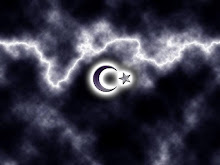see flyer
"What's Right with Islam: A New Vision for Muslims and the West"
By Imam Feisal Abdul Rauf
REVIEW
Publisher's Weekly, May 2004 Rauf, a Manhattan imam whose mosque is only 12 blocks from the World Trade Center site, argues that what keeps the Islamic world and America apart, and what fuels Islamic terrorism, is economics, politics, Muslim defensiveness—everything but religion.
In fact, Rauf believes that America best represents Islam's true values. His major theme is the existence of an "Abrahamic ethic" which undergirds all the monotheistic religions and extols equality and justice. If Muslims, especially American Muslims, harness this Abrahamic ethic, Rauf promises Islam will once again contribute to the universal striving for a better society.
In countering Bernard Lewis's What Went Wrong?, Rauf raises numerous valid points: the U.S. overthrow of democratic Islamic regimes in Iran and Indonesia; U.S. creation and sponsorship of Afghan mujahideen to fight the Soviet Union; the anti-Muslim bias of American media (a point echoed by Karen Armstrong in the foreword); the massive, debilitating effect colonization had on most of the Islamic world; and the "drawing [of] lines" in the Middle East and South Asia by European powers after WWI and WWII, dooming countries with wildly diverse populations to perpetual unrest.
However, Rauf presents these points sporadically and less eloquently than some previous commentators. The book's strengths include a concise history of Islam as well as brief but valuable insights into the American Muslim community. The few references to his own personal story also resonate: "Like many immigrants from Muslim lands, I discovered my Islam in America."
ENDORSEMENTS
"This book shows that the only possible way forward is by the assiduous cultivation of mutual respect. It should be read, but then ~ even more important ~ it should be acted upon."
—Karen Armstrong, author of The Battle for God, from the foreword
"As someone with roots in both East and West, who has spent most of a lifetime attempting to build bridges between our cultures, I welcome this urgently needed book. An insightful examination of the universal values shared by the Muslim world and the West, it presents not just what is right with Islam, but what is right with America too. Imam Feisal speaks from the heart about the higher ground on which we can all unite. It is a book brimming with hope."
—Her Majesty Queen Noor of Jordan, author of Leap of Faith
"After two disastrous wars against Muslim countries, it is more than ever necessary to get objective and sympathetic information about Islam which is provided here by a very competent Muslim scholar living in the US. An excellent work of bridge building!"
—Professor Dr. Hans King, President, Global Ethic Foundation, author of On Being a Christian
"What's Right With Islam is a must read for anyone who wants to contribute to repairing our world post-9/11 - and that needs to be each one of us. Imam Feisal is a model religious leader for the 21st century -he combines passionate love of his own particular tradition with an openness and pluralism that flows from that very passion. This book overflows with the much needed faith that religion in general and Islam in particular can contribute to building a good society."
—Rabbi Irwin Kula, President, CLAL - The National Jewish Center for Learning and Leadership
"An extremely important book for our day. Imam Feisal Abdul Rauf is to be congratulated for such a wise and well-written book. It is a 'MUST' for any thinking person who cares about our world."
—Lord Carey of Clifton, former Archbishop of Canterbury,
Chair of World Economic Forum's Council of 100 Leaders on West-Islamic World Dialogue
"At long last, a book that helps "us Westerners" to see Muslims as they wish to see themselves, and to see the West through Muslim eyes. A more urgent topic could hardly be envisioned post-9/11 and the war on Iraq. Here lies a coherent vision for a future when religions work for peace, and when what is right with Islam is right for Jews and Christians alike."
—Gunnar Stålsett - Bishop of Oslo, Lutheran Church of Norway, member of the Nobel Peace Prize Committee
